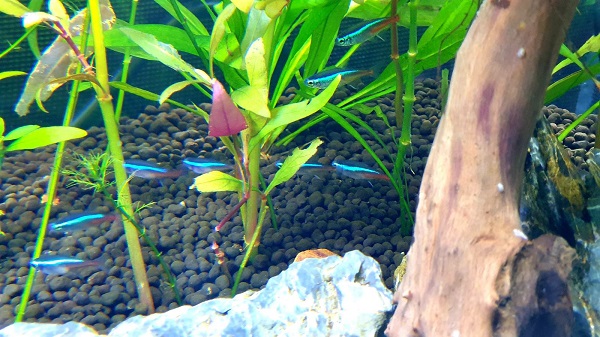Best aquarium filter for Neon Tetra fish tank:
Neon Tetra are small freshwater aquarium
fish so many aquarists think that they don’t need a filter because they produce
less poop as compared to large freshwater aquarium fish. But they are wrong as
every freshwater fish needs a filter that removes the rotten waste, & other
detritus that will otherwise decay & release ammonia. Ammonia is highly
dangerous for the fish & many fish die due to excess of ammonia in the
water. A filter is required not only to trap fish waste & other decaying
matter but to convert ammonia into less dangerous forms. For removal of ammonia,
you need biological filter media. Bio media provides surface for the growth of
useful bacteria. Also, make sure you cycle your aquarium before adding any fish
to the aquarium. Nitrogen cycle is required for the growth of colonies of useful
bacteria over the filter media. This bacteria is also called nitrifying bacteria
because it breaks down ammonia into less toxic forms such as nitrites & nitrates.
The end product of the nitrogen cycle is nitrates & it is less toxic than nitrites
& ammonia. Fish can live with nitrates in aquarium water but excess of
nitrates is still dangerous for the fish. It is recommended to keep live plants
in the aquarium that will consume ammonia by products including nitrates.
What is the top filter for Neon Tetra fish:
Neon Tetra is a small fish so you can use an internal filter in their aquarium which is economical. Internal filters are cheap & they consume less power. Also, they are efficient in filtration of aquarium water. They offer both mechanical & biological media. Internal filters can move & circulate water. They add oxygen to the aquarium water & remove CO2 due to surface agitation. Neon Tetra needs water movement like other fish because they love swimming against the water current. Water movement helps fish in exercise. Water circulation is also very important because it removes dead spots from the aquarium where dirt is trapped. Also, these areas have a lack of oxygen & are considered dangerous for the fish. Large aquariums have more chances of having dead spots as compared to small aquariums.


Post a Comment